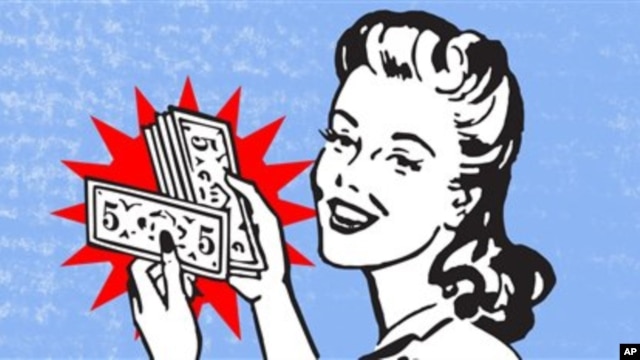 |
| (AP Illustration/Shazna Nessa) |
VOA - December 05, 2012
WASHINGTON — When I lived in Cambodia, I got into a lot of fights. I’d protest the fruit seller who was overcharging me for mangoes because I was American. I’d wave my hands at the police officer who fined me for driving on the correct side of the road. I’d get angry with doctors at the “free” clinic for charging poor patients for drugs.
My Cambodian boyfriend usually just watched and shook his head.
But when we went to the Justice Ministry to get papers for his U.S. visa application, he told me not to fight. Not this time. Just go with it, he said, as he handed money to the clerk to get his papers the same day.
It made me wonder, why do people accept corruption that’s exploiting them? Why defend a government that runs off bribes or nepotism?
“We rationalize the status quo because it reassures us that things are under control and we’re going to be able to have a predictable life,” says Justin Friesen, a doctoral candidate at Ontario’s University of Waterloo and co-author of “Why Do People Defend Unjust, Inept and Corrupt Systems,” published in Current Directions in Psychological Science.
“People have psychological needs to feel good about themselves. Nobody likes to be criticized. Nobody likes their group to be criticized," he says. "Because of this, people will often rationalize and defend the systems they belong to and the status quo they belong to.”
In Cambodia, that might mean paying an extra “service charge” to power company officials to make sure your lights stay on. In the United States, it could mean staying silent when your coworkers are overcharging clients or lying on their timesheets to earn money for hours they didn’t work.
Basically, people want to keep things calm. And if you’re not protesting the problem, the likelihood that you’re a part of it grows.
According to Lamar Pierce, associate professor at the Washington University in St. Louis, two major factors contribute to corruption: Economic motivation and self-serving biases.
“If taking bribes are a function of how much you can feed your kid, then often that is the overwhelming motivator,” Pierce says of the first factor.
But the second factor, to which we all fall prey, is more complex.
“If people are able to convince themselves quite irrationally that what they’re doing is really okay, it’s not their fault, it’s not hurting anyone, that they’re not going to get caught, that’s where you get situations like the subprime crisis,” he says, referring to the U.S. financial crisis in which profit-hungry lenders approved mortgage loans to people who couldn’t afford them.
It’s even easier for people to ignore the desire to be good if they cheat “by a little bit” rather than to the maximum extent possible, according to Francesca Gino, an associate professor at Harvard Business School and the author ofSidetracked: Why Our Decisions Get Derailed, and How We Can Stick to the Plan.
“By seeing other people around us cheat, especially when those people are our co-workers or peers, we are more likely to cheat ourselves,” she adds, describing dishonesty as “contagious.”
So where do we draw the line? Pierce says it starts with asking a simple question. “How would you feel talking to your mom about this at dinner?”
“The very simple metrics that people intuitively tend to do are very helpful as a first-line defense,” Pierce says.
The second-line defense? Ask yourself about the consequences of your actions.
“Is there an ethical component to this? Who is this going to harm? Who is this going to benefit? Is it going to violate any rules?"
It's a five to 10-second check, Pierce says, that can mean the difference between right and wrong.

2 comments:
Good job you should fight the corruption don't let your Cambodians boyfriend talk you out of that.If you don't fight and go along with the corruptors you're corrupted as well,you're quilty as the one over charge you.
Khmerican
Kate, your boyfriend has lived under corruption all his life so it becomes normal for him now and he has grown to accept it as the norm. In a corrupt society like Cambodia, where corruption is systematic, the more you fight the more your lose.
I admire your courage for fighting against such an injustice and corruption. You came from a clean society so you can't accept corruption. My hat off to you.
Post a Comment